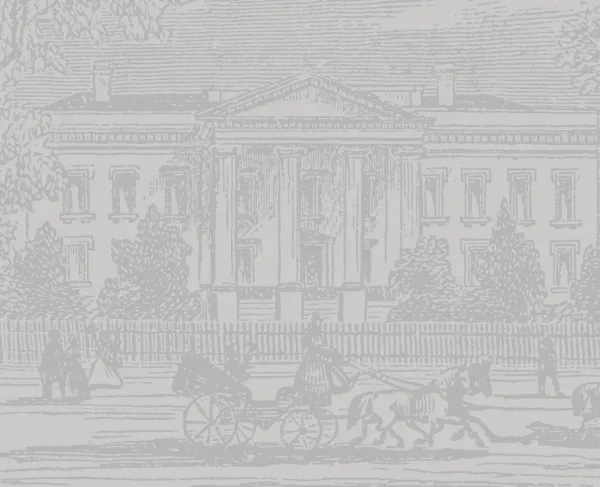1798: "The House of Representatives of the United States Passed the Bill"

On June 4, 1798, The Recorder—published in Greenfield, Massachusetts—published this reporting on the activities of the U.S. Congress, including discussion about naval actions and questions of citizenship during the Adams Administration. Note that the word "alien" refers to people from foreign countries who lived in the United States but were not yet U.S. citizens.
UNITED STATES
PENNSYLVANIA
Philadelphia, May 19.
Yesterday the House of Representatives of the United States passed the bill for raising a provisional army of Ten Thousand Men, and for authorizing the President to accept of the Volunteer Corps, and to commission their officers, 51 votes to 40. A motion was passed without debate (laid on the table yesterday by Mr. Sitgreaves) for restricting members, during the remainder of the session, from speaking more than once to any question, either in the House or in Committee of the whole. The resolution for instructing the committee for the protection of Commerce, and the Defence of the Country, to report what measure are proper to be taken for securing, removing, or otherwise restricting seditious or disaffected Aliens, or others, was agreed to without a division or debate. The house went into a committee of the whole on a bill to amend the present Militia Law. It consisted of nine sections. The two first went to make uniform exemptions from service throughout the United States, taking from the individual States the power which they now possess of making their own exemptions. The six next sections proposed fines on officers and men neglecting duty, and other regulations respecting mustering. The ninth section provided for the purchase of a quantity of arms to be distributed amongst the Militia of the several States. All the sections except the last were struck out, and it was recommitted to the Select Committee to undergo some alterations. A motion was made to adjourn till Monday, but negatived, 37 to 36. The house accordingly meets today.
May 21.
On Saturday the House of Representatives of the United States, went into a committee on the whole on the bill respecting loan office certificates and final settlement certifications, indents of interest, and the unfunded or registered debt credited on the books of the treasury. After filling the blanks, which was done without much debate, the committee role, and the house having concurred in the amendments, the bill was ordered to be engrossed. This bill suspends so much of the act as bars the settlement of the above securities for one year, and provides for the payment of them, and the unfunded and registered debt on the books of the treasury. Several reports of a private nature, were taken up, and disposed of. The house adjourned a little before two.
May 22.
Yesterday the House of Representatives of the United States were engaged in discussing the bill supplementary to, and to amend the act for establishing an uniform rule of Naturalization, and to repeal the act heretofore passed—which, after some discussion and sundry amendments, was agreed to, and ordered to be read a third time today. This bill provides that Aliens shall in future, reside fourteen years in the United States, and give five years notice of their intention of becoming citizens, before they shall be entitled to citizenship. An amendment was introduced by Mr. Gallatin, and carried, excluding from the operation of this law, those who were in this country before the passing of the law of January, 1795, but who have neglected to become citizens, and those who have come since that time, who have given notice of their intention of becoming citizens, agreeably to the directions of that law, provided the former do it within one year, and the latter within four years from the passing of this act. All aliens who continue to reside in this country, shall be reported to the District Court of the District, in all cases of residence within six months after the passing of this act; and in all cases of arrival, within forty eight hours after the person's arrival. — Aliens, who are subjects or citizens of a country with whom the United States are at war, are excluded from citizenship altogether.
May 23.
In the House of Representatives of the United States, yesterday, Mr. Sitgreaves moved the following resolutions which he proposed to be referred to the committee appointed on that of the President's speech which relates to the protection of commerce, and the defence of the country, to be reported upon by bill or otherwise; but which on the request of Mr. McDowell and Mr. Venable, were ordered to lie upon the table till tomorrow.
Resolved, that the commanders of the private armed vessels of the United States, be authorized by law, to take or destroy any cruisers of the French Republic, which shall attack them on the high seas, for the purpose of search or seizure.
Resolved, That the commanders of the public armed vessels of the United States, be authorized and directed to take or destroy any cruiser of the French Republic, which may be found attacking on the high seas, any public or private vessel of the United States, for the purpose of search or seizure.
Resolved, That the commanders of the public and private armed vessels of the U. States, be authorized to retake any vessel of the United States, which may have been captured by the cruisers of the French Republic, and to take and destroy any cruiser which may have made such capture.
Resolved, That the public armed vessels of the United States be authorized and directed to take or destroy all armed cruisers of the French Republic, which may be found on the coast of the United States within [blank space] of the shore.
The house went into a committee of the whole on the bill respecting alien enemies, and after agreeing to some amendments, and undergoing some discussion, it was agreed to, and ordered to be read a third time next day. This bill provides that, whenever there shall be a declared war between the United States, and any foreign nation, or any invasion, or predatory incursion, shall be perpetrated, attempted or threatened against this country, all unnaturalized aliens of such country here, shall be liable to be apprehended, restrained, secured and removed as alien enemies and their goods and effects subject to a just retaliation of any unusual severities and confiscations, which shall be suffered by the citizens of the United States, in the country with which we are so at war, &c. And any person so obstructing the execution of this act, or who shall harbour and conceal any alien liable as an enemy, knowing him to be such, after the proclamation of the President, shall be guilty of a misdemeanor, and liable to a forfeiture not exceeding one thousand dollars, and be imprisoned not exceeding seven years.
March 24. [probably supposed to be May 24]
Yesterday in the House of Representatives of the United States, on the question of "shall this bill pass," being put upon the bill respecting Alien Enemies, Mr. R. Williams moved to recommit the bill, which motion, after some discussion, was carried 46 to 44. — Mr. Sitgreaves then called up the resolutions which he the day before laid on the table respecting instructions to be given to the Commanders of public and private armed vessels; when Mr. Macon moved, that instead of referring the resolutions to the committee for the protection of commerce and the defence of the country (which was proposed by the mover) they should be referred to the committee of the whole on the state of the union. This motion was succeeded by a motion made by Mr. Davis to postpone the further consideration of these resolutions until the second Tuesday in June. This motion produced a debate which took up the remainder of the sitting, and the house adjourned without taking the question.
In the course of the sitting, the Senate sent down a bill which they have passed, for concurrence, for the more effectual protections of commerce and the coasts of the United States, which received its first reading.
(HERE FOLLOWS THE BILL)
Whereas, armed vessels belonging to the Republic of France and citizens thereof, have committed depredations on the commerce of the United States, and have recently captured the vessels and property of citizens thereof, on and near the coasts, in violations of the law of nations, and treaties, between the United States and the French nation.
Therefore—Be it enacted by the Senate and House of Representatives of the United States of America, in Congress assembled, That it shall be lawful for the President of the United States, and he is hereby authorized to instruct and direct the commanders of the armed vessels belonging to the United States, to seize, take and bring into any ports of the United States, to be proceeded against according to the laws of nations, any armed vessel, fitted out at any part belonging to the said republic, or elsewhere, being commissioned by the French government, and which shall be found hovering on the coasts of the United States, for the purpose of committing depredations on the vessels belonging to the citizens thereof—and also to retake any ship or vessel of any citizen or citizens of the United States which may have been captured by any such French cruiser.
Source:
"Pennsylvania, Philadelphia," published in The Recorder, Greenfield, Massachusetts, June 4, 1798. Page 2. Accessed through Newspapers.com

